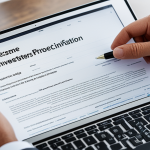Key Trade Agreements Shaping the UK Automotive Sector
Trade agreements play a pivotal role in defining the UK automotive sector’s future post-Brexit. The EU-UK Trade and Cooperation Agreement (TCA) remains the cornerstone, providing tariff-free access between the UK and EU, crucial for automotive exports and imports. This pact addresses customs procedures, but new regulatory checks have introduced complexities, impacting supply chain fluidity.
Outside the EU, the UK has rapidly signed multiple non-EU trade deals, seeking to diversify its markets and reduce dependence on Europe. These agreements often focus on lowering tariffs and expanding market access, which are vital for manufacturers aiming to maintain competitive pricing and global reach. However, the rules embedded in these agreements, such as rules of origin, require careful navigation to ensure goods qualify for preferential treatment.
Also to discover : Title: How Can Technological Advancements Shape the Future of Automotive Design in the UK?
Brexit fundamentally transformed the trading landscape. While it grants the UK autonomy in choosing partners, it also means that firms must adapt to varying rules, tariffs, and customs arrangements, unlike when operating within the single market. Understanding and leveraging the nuances in the UK trade agreements will determine how well automotive businesses thrive amidst evolving international market dynamics.
Tariffs, Customs, and Market Access Post-Brexit
Post-Brexit tariffs have been a critical concern for the UK automotive sector. Thanks to the EU-UK Trade and Cooperation Agreement, most automotive goods enjoy tariff-free status when traded with the EU, provided they meet strict rules of origin criteria. If these rules are unmet, tariffs may apply, potentially increasing costs.
This might interest you : How Will UK Automotive Manufacturers Adapt to Rapid Technological Advances?
Customs procedures have notably changed. Increased documentation requirements and border checks have become standard, slowing supply chains. The new checks affect automotive exports and imports alike, with delays at ports impacting just-in-time manufacturing processes crucial to the industry.
Market access now depends heavily on navigating both tariffs and customs procedures effectively. While tariff-free trade with the EU remains, new non-tariff barriers complicate border crossings. Access to non-EU markets depends on newer non-EU trade deals, which often come with their own customs rules and regulatory standards.
Overall, while post-Brexit trade arrangements maintain basic openness, the increased complexity in customs and compliance demands strategizing. For manufacturers, understanding these evolving rules is vital to optimizing supply routes and sustaining profitable market access.
Supply Chains, Sourcing, and Manufacturing Costs
Post-Brexit supply chain disruption has become a significant challenge in the UK automotive sector. New rules of origin under the EU-UK Trade and Cooperation Agreement require that a substantial portion of a vehicle’s components originate within the UK or EU to qualify for tariff-free trade. Failure to meet these criteria can trigger tariffs, increasing overall manufacturing costs. This intensifies pressure on sourcing strategies.
The complexity of these rules of origin means manufacturers must meticulously audit their supply chains, ensuring that parts come from compliant regions. This impacts decisions about where to source components, compelling shifts away from previously cheaper non-EU suppliers unless trade agreements favor them.
Disrupted supply chains also translate to higher indirect costs, such as inventory holding and delays. Increased customs inspections lengthen transit times, affecting the just-in-time manufacturing model vital to the sector’s cost efficiency.
Trade agreements clearly influence both sourcing flexibility and cost structures. UK companies are balancing compliance with these agreements while striving to remain competitive globally. Navigating the interplay between supply chain disruption, rules of origin, and rising manufacturing costs is crucial for maintaining the sector’s profitability and long-term growth prospects.
Trade Agreements and Automotive Exports/Imports
Trade agreements critically influence automotive exports and imports in the UK, shaping trade volumes and destination markets. Since Brexit, the EU-UK Trade and Cooperation Agreement maintains tariff-free trade for compliant vehicles and parts, safeguarding significant European market access. However, stricter rules of origin have reshaped supply strategies, impacting export volumes when components fall outside qualifying parameters.
Meanwhile, non-EU trade deals have enabled diversification of export markets. Emerging agreements with countries beyond Europe offer new opportunities but often involve distinct compliance and regulatory requirements. Automotive companies now face the challenge of aligning production and sourcing to meet multiple sets of standards.
Trade volumes have shifted accordingly. Exports to the EU remain predominant but growing trade with non-EU partners reflects the sector’s adaptive strategy. For automotive imports, dependence on both EU and non-EU suppliers continues, with evolving tariffs and customs affecting costs and delivery times.
Case studies reveal practical impacts: manufacturers expanding into Asia-Pacific markets benefit from tailored trade deals, while some face hurdles adjusting supply chains to satisfy origin rules. Overall, trade agreements strongly dictate market access, influencing the flow of automotive goods and strategic decisions in the UK sector.
Foreign Direct Investment and Sector Growth
Post-Brexit trade policies have had a measurable impact on foreign investment in the UK automotive sector. Investors assess the certainty and stability offered by the UK’s trade landscape, which hinges heavily on the clarity and efficiency of UK trade agreements. The EU-UK Trade and Cooperation Agreement provides a degree of reassurance through tariff-free access to Europe but the accompanying customs complexity can deter some investment.
Conversely, emerging non-EU trade deals are broadening market potential, encouraging investment from regions keen to leverage preferential terms. Industry players have responded by realigning operations and supply chains to absorb the implications of Brexit and these evolving agreements.
Investment decisions increasingly factor in the ability to meet varied regulatory standards and rules of origin prerequisites, impacting decisions on site location and supplier partnerships. Some manufacturers are accelerating automation and efficiency improvements to counterbalance increased compliance costs.
Growth prospects in the sector now depend on adapting to the intricate post-Brexit environment, balancing market access opportunities with regulatory challenges. Robust investment strategies, guided by a nuanced understanding of trade deals, remain crucial for sustaining competitiveness and securing long-term industry growth.
Expert Perspectives and Industry Forecasts
Experts highlight the UK automotive sector’s resilience amid the evolving post-Brexit trade environment. Detailed expert analysis reveals that while challenges such as complex customs procedures persist, industry adaptation is progressing. Forecasts based on current data suggest moderate growth tied closely to how effectively UK businesses leverage UK trade agreements.
Industry specialists emphasize that understanding the nuances of the EU-UK Trade and Cooperation Agreement and various non-EU trade deals will be decisive. Navigating multiple regulatory frameworks and rules of origin is crucial for maintaining smooth market access and controlling costs.
Data-driven insights indicate trade volumes with both EU and non-EU partners will gradually diversify. This diversification aligns with projections of expanding export destinations and evolving supply chain strategies. Sector growth forecasts also factor in ongoing investments in innovation and automation, which mitigate some post-Brexit impacts.
Overall, experts recommend leveraging detailed compliance strategies, capitalizing on new trade opportunities, and continuously monitoring regulatory shifts. This approach strengthens competitiveness and optimizes benefits from the complex network of trade agreements shaping the market.




